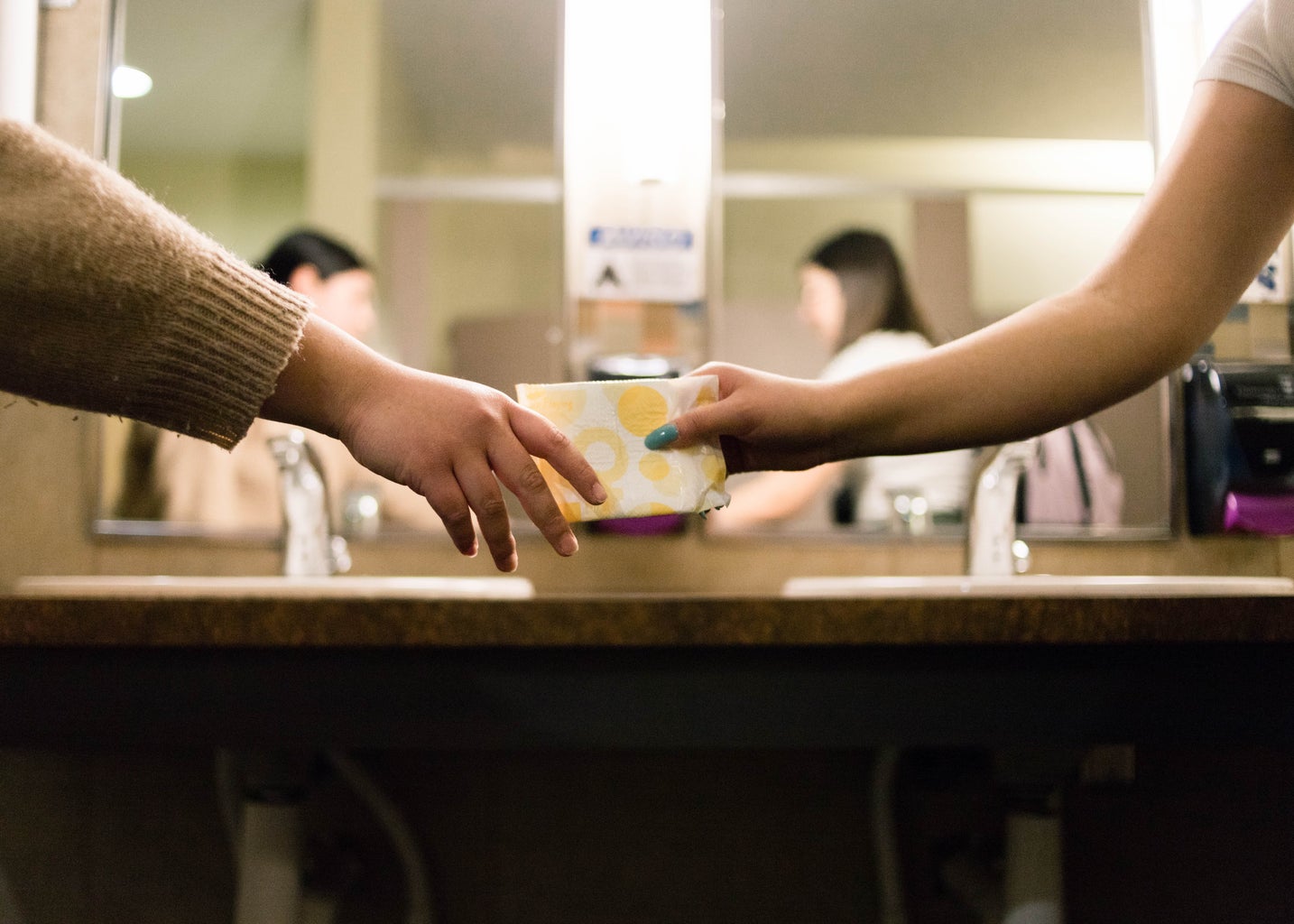On October 8th, 2021, California Governor Gavin Newsom approved Assembly Bill 367 (AB 367), also known as the Menstrual Equity for All Act. This bill, which was proposed by state assembly member Cristina Garcia, amends the state’s former requirements for public schools to stock “50% of the school’s restrooms with feminine hygiene products.” With the new legislation passed, public schools with students in 6th-12th grade, community colleges, and schools within the California State University (CSU) system will be required to provide free menstrual products starting in the 2022-2023 school year. Per the bill, these products are specifically required to be stocked in “all women’s restrooms and all-gender restrooms, and in at least one men’s restroom” on the school campuses. By requiring menstrual products all-gender and gendered bathrooms, this ensures that trans and non-binary people who menstruate will still have access to the products that they need.
There are a few schools exempt from this policy. The legislation specifically states that schools within the University of California system, private universities, and private institutions are “encouraged” to also provide menstrual products per the state guidelines. As of October 16th, the Regents of the University of California had yet to make any official announcement about this bill. However, student advocacy groups such as Davis Period at University of California, Davis, already have existing programs for putting menstrual products in some campus bathrooms. Similar branches of organizations like Free the Period have created chapters in many California colleges. While these programs are typically limited to the donations they receive, their structure provides the possibility of future partnerships with campus officials and funding for the reliable provision of free menstrual products for students.
In a press release about the approval of AB 367, Garcia stated, “It is time we recognize and respond to the biology of half the population by prioritizing free access to menstrual products, and eliminating all barriers to them.” The bill was also described as inspired by the Period Product (Free Provision) Bill that was passed in Scotland in 2020, which made period products available for free in all public places.
Many hope this bill will help all menstruators gain easier access to menstrual products, such as tampons and pads, and help ease period poverty, or the inability to afford necessary menstrual products. According to a national survey of women in college published in BMC Women’s Health, 14.2% of women reported that they experienced period poverty in the past year. The same study also found an association between period poverty and depression, suggesting that lack of access to adequate period products can have negative effects on mental health.
While AB367 is seen as a step towards more widespread period product accessibility in California, there are a variety of related causes that advocacy groups are still working towards. In a tweet by Congressmember Garcia, she said, “We need to keep going until products are as readily available as toilet paper.” Other causes include eliminating the tampon tax in all states, destigmatizing menstruation, and making period products available in all public spaces.




